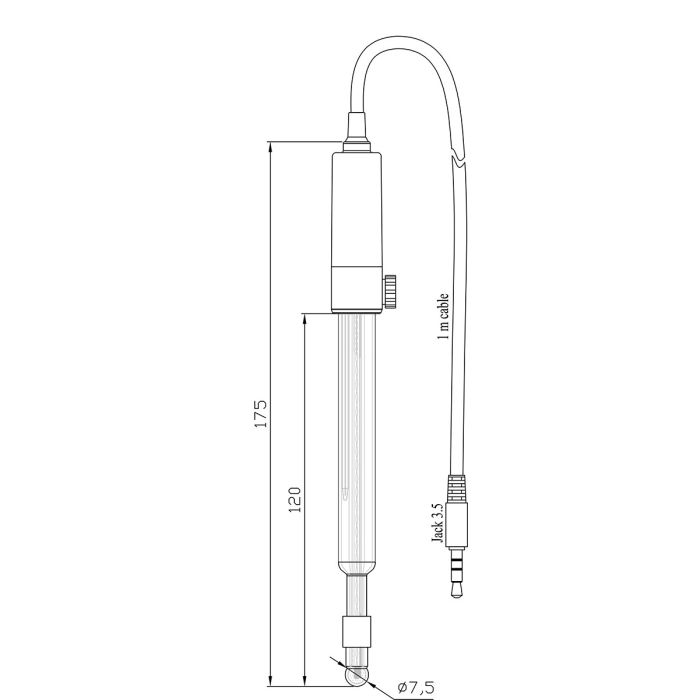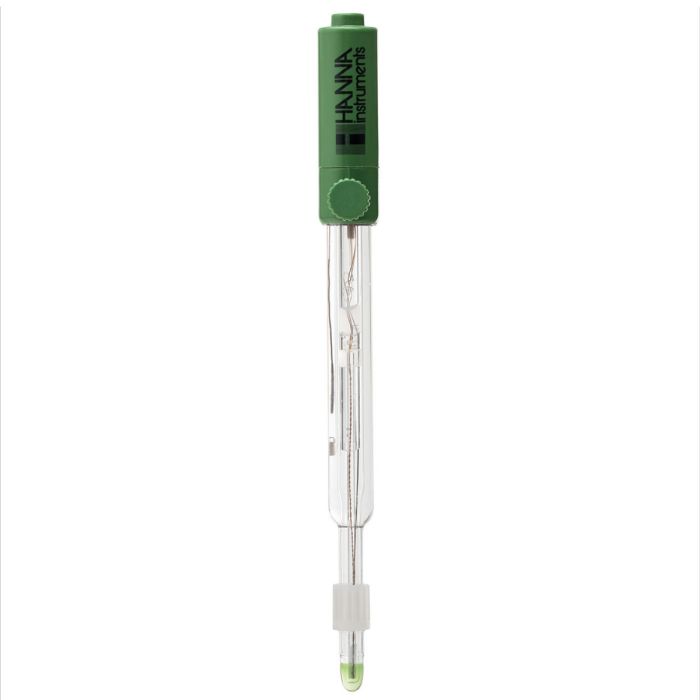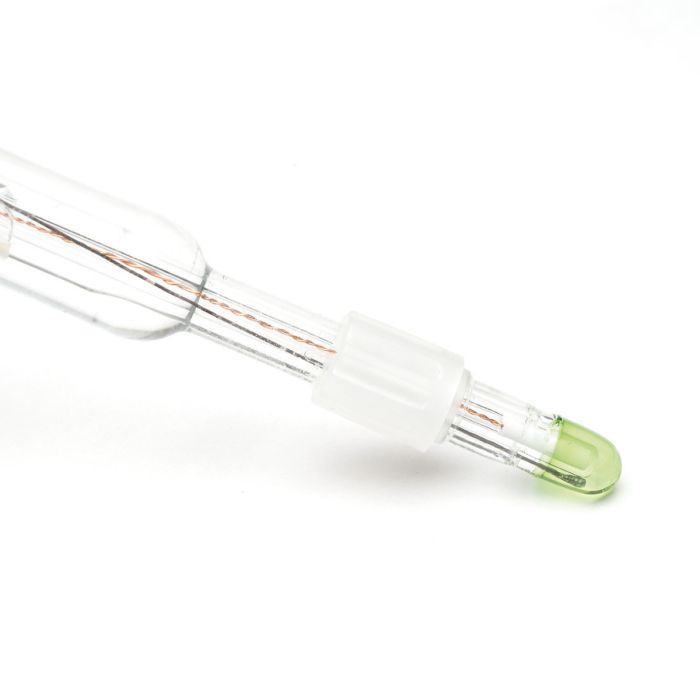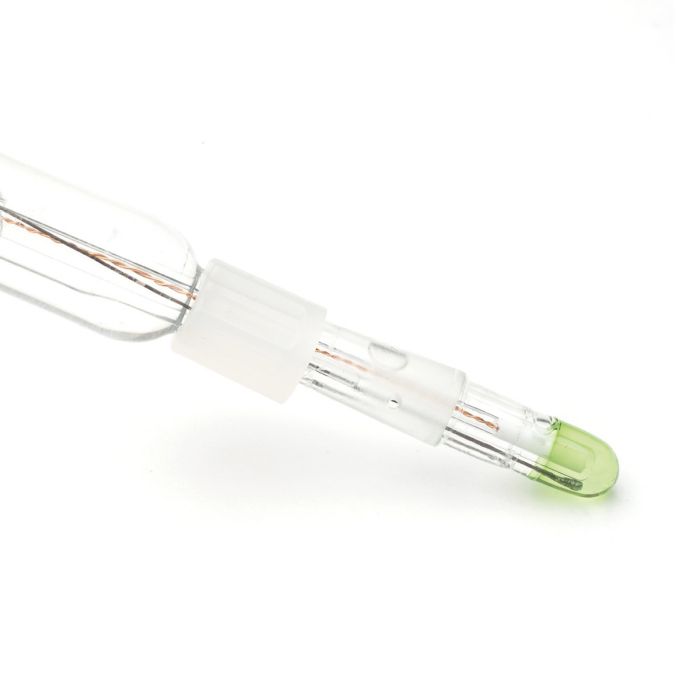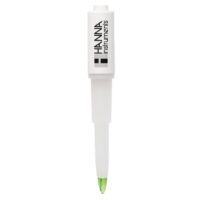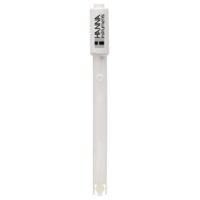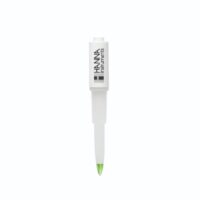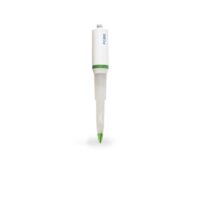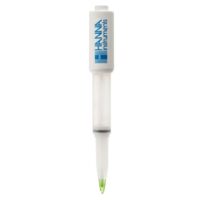Built-In Microchip
The built-in microchip stores sensor type, serial number and calibration information including date, time, offset, slope, probe condition and buffers used. This information is automatically retrieved by edge® once the electrode is plugged in. The ability to transfer information allows for hot swapping of probes without having to recalibrate. All pH measurements are performed within the electrode and transferred digitally to the meter. This overcomes any noise issues associated with the traditional high impedance analog measuring system. Electrical noise can be generated from a built in temperature sensor and while working in a humid environment.
Spherical Glass Tip
The spherical shaped tip design allows for a wide area of contact with the measured sample. This permits a faster electrode response with a higher degree of stability. The HI10480 utilizes a low temperature (LT) glass formulation that has a resistance of around 50 megaohms at 25℃. As the temperature of the glass decreases in the sample, the resistance of the LT glass will approach that of GP glass. If using GP glass, the resistance would increase above the optimum range, resulting in increased impedance and ultimately affecting the measurement. The HI10480 is suitable to use with samples that measure from 0 to 80℃.
CPS Sleeve Junction
CPS™ (Clogging Prevention System) is an innovation in electrode technology. Conventional pH electrodes use ceramic junctions that clog quickly when used in wine. When the junction is clogged, the electrode does not function. CPS™ technology utilizes the porousness of ground glass coupled with a PTFE sleeve to prevent clogging of the junction. The ground glass allows proper flow of the liquid, while the PTFE sleeve repels dirt. As a result, pH electrodes with CPS™ stay fresh up to 20 times longer than conventional electrodes.
Double Junction Reference
A double junction electrode has an internal compartment surrounding the reference wire. Silver ions are present in the electrolyte of the internal compartment, which houses the Ag/AgCl reference wire; the electrolyte outside this compartment is silver free. The double junction design means that virtually no silver from the electrode enters the sample. This design allows measurement in applications where silver ions in the sample are undesirable or silver precipitates on the junction are likely to form.
Glass Electrode Body
The glass electrode body is suitable for a wide range of applications due to its chemical resistance. The glass electrode is compatible with many non-aqueous solvents and other aggressive chemicals. Glass is also resistant to many forms of radiation, such as ultraviolet radiation.
Purchase & Shipping
All prices are inclusive of GST and not all items are stock items, if you require an immediate solution, please send an email to sales@hannainst.com.au or call us on (03) 9769 0666.
Free standard delivery: Free shipping applies to online orders over $150 placed via our website within Australia, typically arriving within 5 to 7 days. Delivery times may vary depending on the courier service and the recipient’s location. Free shipping is not available with other offers or discounts.
Same-day dispatch: Place your order before 1 PM Monday to Friday for same-day despatch (leaves our warehouse). Delivery times may vary depending on the courier service and the recipient’s location. Subject to stock availability.
Please note that we do not offer shipping to PO Box addresses.
